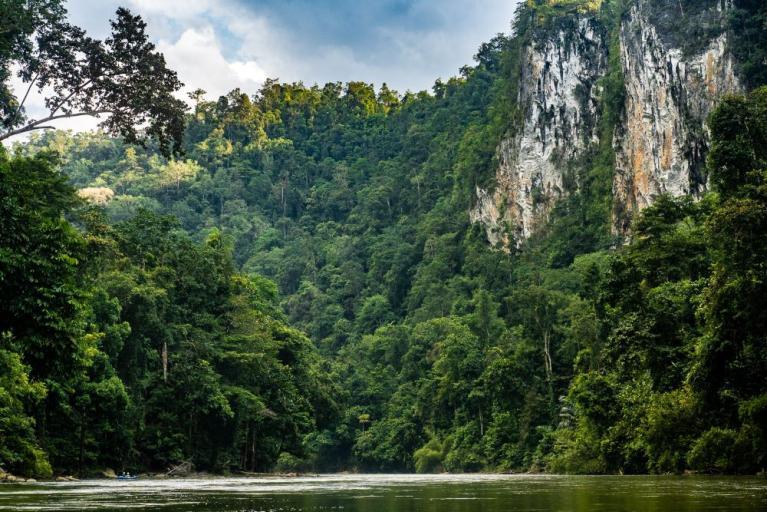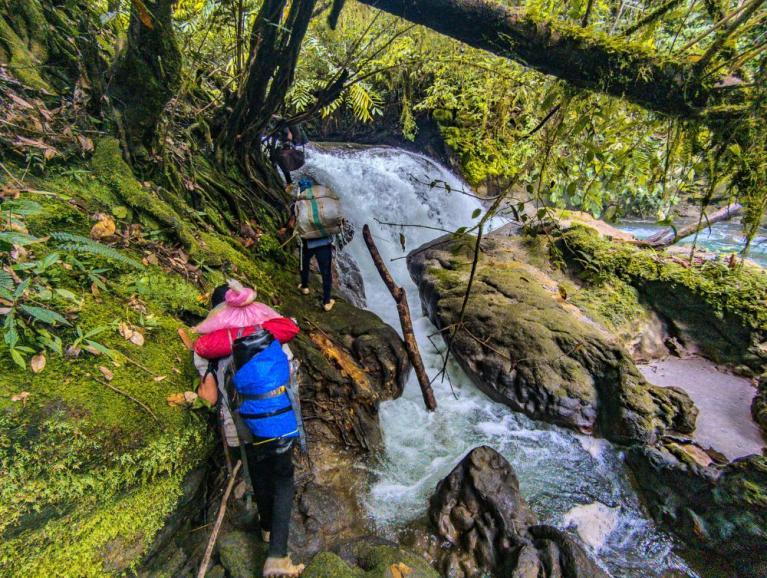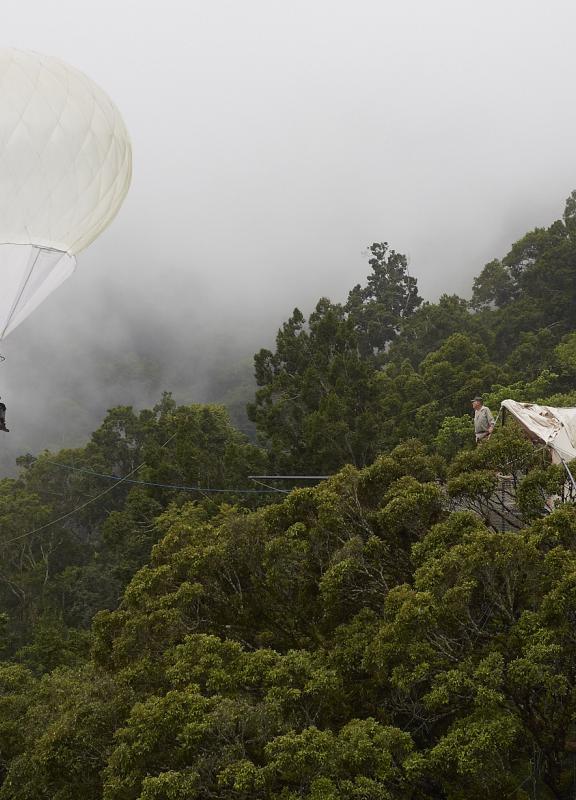Wallacea Expeditions - Canopy Mission
The project
Since 2009, Naturevolution has chosen to focus its efforts on studying and preserving hard-to-access and little-known natural environments that are under threat: the planet’s last remaining Terras Incognitas. Its action comprises three stages: (1) explore and make naturalist inventories of these little-known environments; (2) increase awareness of and highlight their richness amongst local inhabitants, the authorities and the general public; and (3) develop projects that have long-term benefits for the environment and local inhabitants.
Sulawesi
The Matarombeo massif on the Indonesian island of Sulawesi was first approached by French speleologists in 2006. Following an exploration in 2012, convinced of this massif’s exceptional importance in terms of its biodiversity, Naturevolution set its sights on exploring the area in partnership with international scientific institutions – as it did for the Makay massif in Madagascar, which is now classified as a Protected Area – with the ultimate goal of getting it classified as a Geopark (UNESCO status).
This national park, which would cover more than 10,000 km², is the only way to stop the deforestation that is rife in this region. Once protected area status has been granted, the association will put in place a preservation program in liaison with the organizations responsible for managing this future new protected area.

The scientific explorations
Through transdisciplinary scientific explorations, the expeditions will seek to provide convincing reasons to preserve this primary forest and will measure the impact of the man-made threats that are weighing on this region, and notably those of the nickel mines that are currently devastating a large part of the island’s coastline. The scientific data and images will be used to help persuade the Indonesian government and local authorities that this region should be classified as a unique nature reserve.

4
zones of action in hard-to-access areas
+80 000
trees planted in the new Makay protected area in Madagascar since 2019
1500
children made aware of Makay preservation issues
